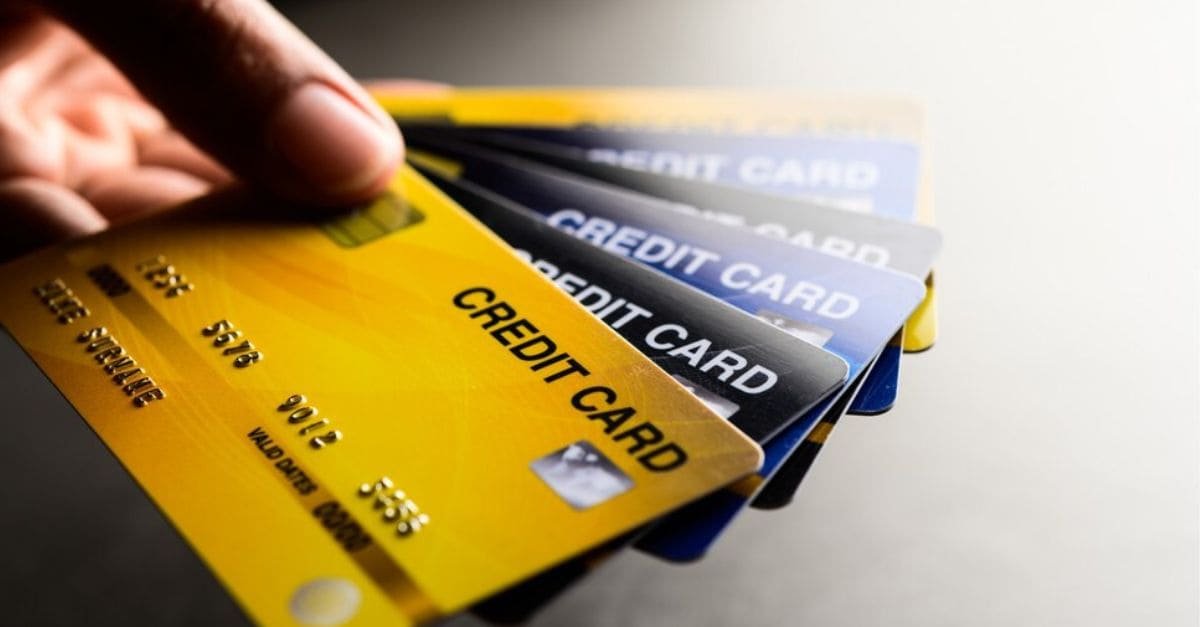
A second credit card can be a valuable financial tool when used responsibly. It can help you manage debt, boost your credit score, and even unlock new rewards. However, it’s not the right choice for everyone. Deciding whether or not to get a second credit card depends on your financial situation, goals, and spending habits. In this article, we’ll explore the reasons why you might want to get a second credit card, what to look for when choosing one, and what factors to consider before applying.
Table of Contents
Reasons You Should Get a Second Credit Card
There are several reasons why you might want to add a second credit card to your wallet. Here are some common scenarios where a second card could benefit you.
1. Your Credit Score Has Improved
If your credit score has recently improved, you’re likely eligible for better credit card offers. Cards with higher credit limits and better rewards tend to be available to those with good or excellent credit scores. A second card can also help increase your total available credit, which could lower your overall credit utilization ratio—a factor that can positively impact your credit score.
2. Maximizing Rewards
Credit cards often come with rewards programs that offer cash back, travel points, or other perks based on your spending. If you have a primary card that doesn’t offer rewards or doesn’t fit your spending habits, a second card could help you maximize rewards. For example, if you already have a general cashback card, a travel rewards card might be ideal for earning points on travel-related expenses.
3. Consolidating Debt with Balance Transfers
A second credit card could be a strategic tool for consolidating high-interest debt. Many balance transfer cards offer 0% APR for an introductory period, which can help you pay down debt without accruing interest. However, be sure to read the fine print—balance transfers often come with fees, and the 0% APR offer may only last for a few months.
4. Building Credit
If you’re looking to build or rebuild your credit, having an additional credit card can be beneficial. It increases your available credit, which can lower your credit utilization ratio. However, it’s crucial to make payments on time and avoid carrying high balances to see improvements in your credit score.
What to Look for in a Second Credit Card
Credit card companies are willing to sell their credit cards to everyone. But when deciding to get a second credit card, it’s essential to choose one that aligns with your financial goals and lifestyle. Here are some factors to consider when comparing credit card offers.
1. Account Terms and Fees
Before applying for any credit card, carefully review the account terms and disclosures. This will include information on things like APR (Annual Percentage Rate), fees, and rewards. Pay attention to:
- APR: Some cards offer introductory 0% APR for a certain period, which is beneficial if you plan to carry a balance.
- Annual Fees: Some cards charge annual fees, while others do not. Consider whether the rewards and benefits outweigh the cost of the fee.
- Penalty APR: Missing payments could trigger a penalty APR, which is much higher than the standard rate.
2. Rewards Programs
Credit cards offer different types of rewards, such as cashback, travel points, or rewards for specific categories like dining or groceries. It’s essential to choose a card that aligns with your spending habits. For example, if you often travel, a travel rewards card might be a good choice. If you prefer simplicity, a flat-rate cashback card could be better.
3. Interest Rates
Interest rates (APR) can vary widely between credit cards. While some cards offer low interest rates or 0% APR promotions, others may have higher rates. If you plan to carry a balance, compare the APRs to choose the card with the best rate.
What to Consider When Applying for a Second Credit Card
Before submitting an application for a second credit card, there are a few key considerations to ensure you make the right decision.
1. Check for Pre-Approval
Before formally applying for a new credit card, it’s a good idea to check if you’re pre-approved for any offers. Many credit card companies allow you to see pre-approval options without affecting your credit score. This can help you identify which cards you’re most likely to qualify for and avoid unnecessary hard inquiries on your credit report.
2. Monitor Your Credit Score
It’s important to have an up-to-date understanding of your credit score before applying for a second credit card. Monitoring your credit score helps you gauge whether you’re likely to be approved for a new card and can guide you in choosing the best options. You can use tools like CreditWise from Capital One to get your score for free and simulate how applying for new credit might affect your score.
3. Avoid Too Many Hard Inquiries
Each time you apply for a new credit card, a hard inquiry is made on your credit report, which can temporarily lower your score. While a single inquiry won’t have a significant impact, too many inquiries within a short period can hurt your credit. It’s best to limit credit applications to those that are necessary and pre-approved.
4. Consider Your Debt-to-Income Ratio
If you’re already carrying a high amount of debt, it may not be the best time to open a second credit card. A high debt-to-income ratio can indicate financial strain, and adding more credit might increase the risk of falling deeper into debt. Focus on paying down your current debts before applying for more credit.
Can Having Two Credit Cards Help Improve My Credit Score?
Using multiple credit cards responsibly can help improve your credit score over time, but only if you manage them properly. Here are the key factors that influence your score:
1. Payment History
Your payment history makes up a significant portion of your credit score. Paying all your bills on time is crucial for maintaining and improving your score, regardless of how many credit cards you have.
2. Credit Utilization Ratio
Your credit utilization ratio is the percentage of your total available credit that you’re using. It’s recommended to keep this ratio below 30% to avoid negatively impacting your score. A second credit card can help by increasing your total available credit, but only if you continue to use credit responsibly and avoid carrying large balances.
3. Length of Credit History
Opening a new credit card can lower the average age of your credit accounts, which may cause a slight dip in your score initially. However, as the new account ages, it will improve your credit history and contribute positively to your score over time.
4. Credit Mix
A diverse mix of credit types—such as credit cards, loans, and mortgages—can help improve your credit score. If you already have revolving credit (credit cards), a second card might not significantly affect your credit mix, but it could still show that you can manage multiple credit accounts.
Key Takeaways
Deciding to get a second credit card depends on your unique financial goals and situation. A second card can help improve your credit score, offer rewards, and provide backup in case of emergencies, but it’s important to use it responsibly. Before applying, take maximum time to study and compare various credit card options. Look for cards that align with your financial goals, whether earning rewards, building credit, or having a low-interest rate. Make sure you’ve done your research, checked your credit score, and compared offers.
If you’re considering applying for a second credit card, always review the terms and fees carefully, monitor your credit utilization, and ensure that the card aligns with your needs. Most importantly, use your cards responsibly by paying bills on time and keeping balances low to reap the full benefits of credit.
FAQs: When to Get a Second Credit Card?
Can I get a second credit card if I already have one?
Yes, you can definitely get a second credit card even if you already have one. Having multiple credit cards is quite common, and it is up to the individual to decide if they want more than one.
When should I consider getting a second credit card?
There are a few different scenarios where it could make sense to get a second credit card. Some common reasons include wanting to take advantage of different rewards programs, needing additional spending power, or looking for a lower interest rate.
Will having multiple credit cards negatively impact my credit score?
It depends on how you manage your credit cards. If you make timely payments and keep your balances low, having multiple credit cards can actually improve your credit score. However, if you miss payments or carry high balances on all of your cards, it could negatively impact your score.
Are there any benefits to having a second credit card?
Yes, there are potential benefits to having a second credit card. It can increase your overall available credit which can improve your credit score, allow you to take advantage of different rewards programs, and provide a backup form of payment in case one card is lost or stolen.
Are there any drawbacks to having multiple credit cards?
One potential drawback is the temptation to overspend when you have multiple credit cards. It’s important to keep track of your spending and make sure you can pay off all of your credit card bills on time each month.






